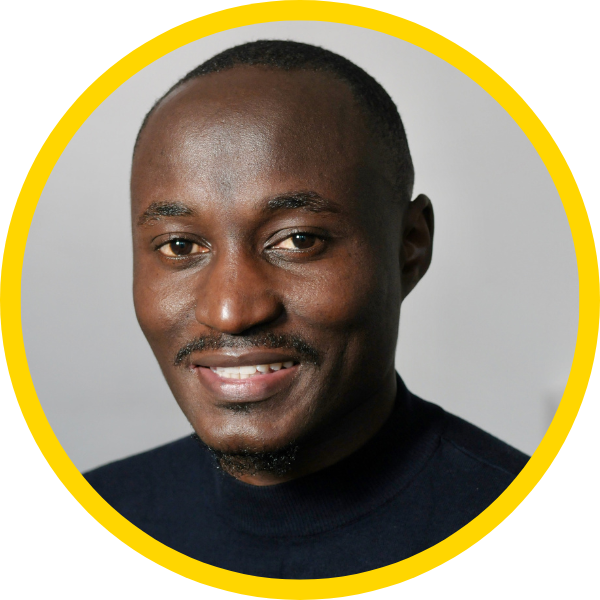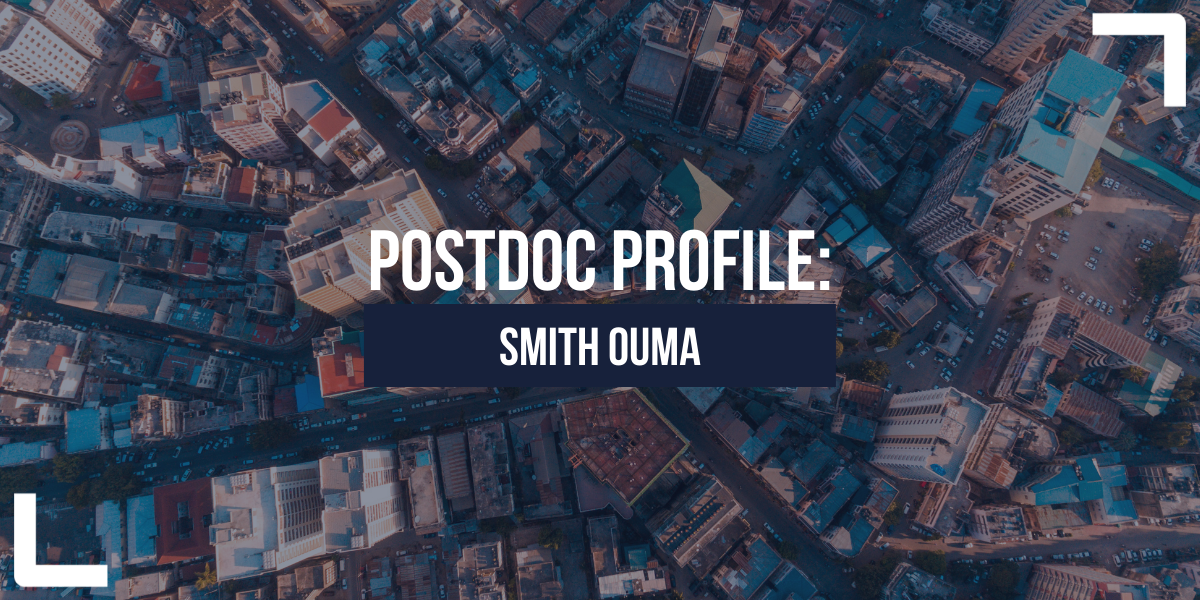Eight postdoctoral research fellows joined ACRC in early 2022, based at The University of Manchester’s Global Development Institute. As well as working on their own research, the postdocs are providing vital support across our eight urban development domains, with mentoring from dedicated members of our research team.
Here, Smith Ouma talks about his focus on rights-based approaches to development, his work as part of ACRC’s informal settlements domain, and why he’s excited to be part of the consortium.

Tell us a bit about your background…
My background is in law. I lectured and practised law in Kenya prior to undertaking my PhD, which I recently completed at Cardiff University. My research is transdisciplinary, focusing on rights-based approaches to development, particularly integrating participation in urban governance. I am also interested in understanding how land in the city can be unlocked to provide for the needs of the city’s inhabitants, especially the most vulnerable and marginalised groups.
How would you explain your research to a friend or family member?
I examine the institutions and actors that play key roles in shaping the outlook of our cities. My research identifies the instances where, and the reasons why, these actors come together to explore solutions to urban challenges, and the interventions they devise to tackle the identified challenges. I am particularly keen on exploring the visions for change these actors project – are they inclusive of the inhabitants of marginalised urban neighbourhoods? And what do they mean for access to land and basic services in informal settlements?
What does your role within ACRC entail?
At ACRC, I support the work of the informal settlements domain. The domain seeks to understand the political economy and politics of informal settlement development. We aim to understand the growth trajectories of informal settlements in African cities and to examine the drivers of their growth. We also explore the ways in which organised communities seek to address the needs of informal settlements at the city scale. I will also work on my individual project, which examines the urban governance interventions that have been rolled out in Nairobi in the periods between 1980-2022.
“It is interesting to see how ACRC is building strong, horizontal collaborations with a diverse range of research partners and how the process makes a conscious effort to centre the voices of marginalised urban communities.”
What are you finding most interesting about your work with ACRC so far? What are you most excited about?
ACRC brings together expertise from various institutions and African countries. It is interesting to see how ACRC is building strong, horizontal collaborations with a diverse range of research partners and how the process makes a conscious effort to centre the voices of marginalised urban communities. I am also excited to work with and learn from an incredible team of urbanists who are working together to tackle complex problems in Africa’s rapidly urbanising cities.
In fewer than five words, what one issue do you think needs to be prioritised to improve urban development in African cities?
Democratising urban governance.
What do you enjoy doing in your spare time?
When the weather is good, you will find me going for a walk, a run in the park, or spending time outdoors with friends. I love watching insightful documentaries and reading a good book.
Note: This article presents the views of the author featured and does not necessarily represent the views of the African Cities Research Consortium as a whole.
The African Cities blog is licensed under Creative Commons Attribution-NonCommercial-NoDerivatives 4.0 International (CC BY-NC-ND 4.0), which means you are welcome to repost this content as long as you provide full credit and a link to this original post.


